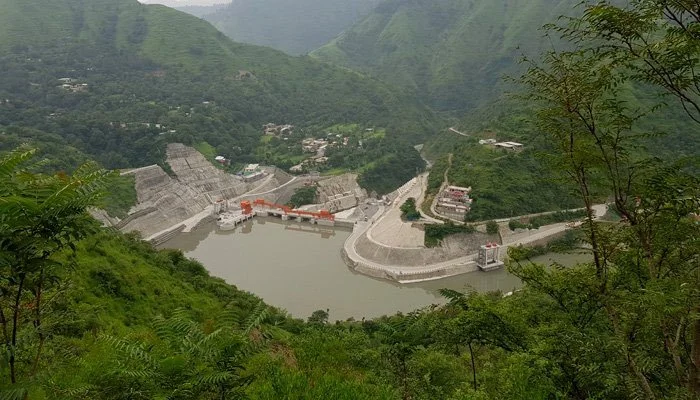ISLAMABAD, June 27(ABC): Following the failure of the PTI government to take the necessary action to resolve the issue of including escalated costs in true-up tariffs, Korean investors have filed a claim with the London Court of International Arbitration (LCIA) against the government of Pakistan, seeking $94 million (Rs19.6 billion) in compensation.
The Korean investors claimed that the National Transmission and Despatch Company (NTDC) failed to evacuate electricity from the 147-megawatt Patrind Hydropower project for at least six months after the project’s COD, as well as the cost of constructing a point from which the electricity was to be delivered to the national grid, according to a top official of the power division.
According to the official, the power division, under Federal Minister for Power Khurram Dastgir, smelt a rate and decided to fix the racket of unscrupulous officials of NTDC, CPPA, and power division who were responsible for not evacuating electricity from the project on time and raising no objection to a Korean company that set up a delivery point that NTDC did not want because it wanted to evacuate electricity from another point.
However, the delivery point, which NTDC did not want, was built by a Korean company, Star Hydro Power Limited (SHPL), resulting in an increase in project costs that was not reflected in the true-up of the electricity generated by the Patrind Hydropower project.
According to the official, the investigation shows that NTDC did not object when the Korean company built the electricity delivery point that the state-owned entity did not want.
NTDC is currently dealing with transmission projects totaling Rs421 billion.
“We have removed a joint secretary who allegedly developed vested interests with NTDC for various projects,” the official said.
“There are reports the same racket will launch some officials who will represent NTDC in LCIA and will give technical input in the case not up to the mark ensuring the government of Pakistan loses the case and in return they will manage some “commission” in British pounds,” senior officials in the power division confided to The News. “We will keep a vigilant eye on the case proceedings,” they said.
They claimed that when Shehbaz Sharif became Prime Minister, this matter was brought before him. He formed a committee to investigate out-of-court settlement options, arguing that the government’s track record shows that it is frequently defeated in arbitration.
This scribe wrote to NTDC and the PPIB (Private Power Infrastructure Board) asking why the Korean company that built the Patrind Hydropower Plant relocated LCIA and why NTDC failed to evacuate electricity on time. Both departments remained silent.
In response to a question, the official stated that SHPL is an Independent Power Producer (IPP). It has invested in and developed the 147MW run-of-river Patrind Hydropower project on the Kunhar River near the village of Patrind in the Azad Jammu and Kashmir district of Muzaffarabad (AJ&K).
The project generates power for Pakistan’s national grid. The project was developed on a BOOT basis under the government’s Policy for Power Generation Projects 2002, with a 30-year concession period. SHPL was formed as a public limited company in April 2006 to develop and implement the project. SHPL’s sponsors are Korea Water Resource Corporation (K-water) and Daewoo Engineering & Construction Company, which have acquired a 100 percent stake in the company through the Singapore-based investment vehicle KDS Hydro.
The Patrind Hydro Power Project has been in operation since November 2017. Hydropower projects have a three-tier cost-plus tariff determination process under the 2002 policy read with Nepra’s Mechanism for Determination of Tariff Hydropower Projects, namely the Feasibility Stage, EPC Stage, and COD Stage true-up.
The project company, through CPPA-G, filed a petition before Nepra’s determination of COD stage tariff for $420.127 million. However, Nepra approved the COD stage tariff on July 29, 2020, at a cost of $ 326.261 million. On August 28, 2020, the company filed a review petition with Nepra, which is still pending.

